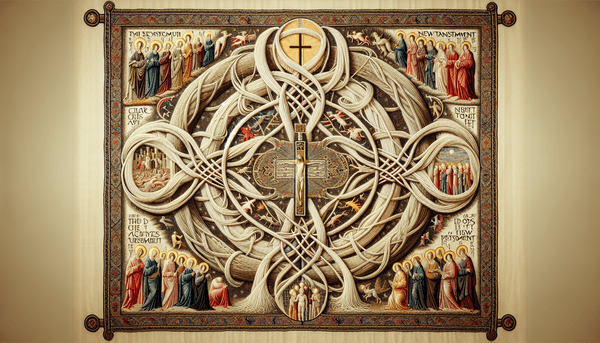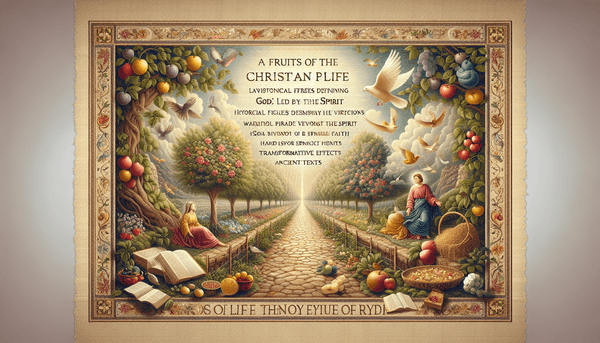Living in the Present
Jesus encouraged His followers to live in the moment when He said, \"Therefore do not worry about tomorrow, for tomorrow will worry about itself. Each day has enough trouble of its own\" (Matthew 6:34). This profound statement from the book of Matthew is a call to trust in God's provision and to focus on today, rather than being consumed by the worries of what is yet to come. The Bible also teaches us to not boast about tomorrow, for we do not know what a day may bring (Proverbs 27:1), reminding us that life is a gift and to cherish the present. As we are instructed to embrace the season we are in (Ecclesiastes 3:1), we learn to appreciate and rejoice in each day, for \"This is the day the Lord has made\" (Psalm 118:24), and to understand the transience of life, as James tells us we are a mist that appears for a little while and then vanishes (James 4:14).
Navigating Relationships
In matters of relationships, the Bible is rich with advice on how to love and interact with one another. It instructs us to be kind, tenderhearted, and forgiving, just as God forgave us through Christ (Ephesians 4:32). The defining characteristics of love are beautifully articulated in 1 Corinthians: patience, kindness, a lack of envy, boasting, pride, and dishonor to others. Love is not self-seeking, not easily angered, and keeps no record of wrongs. It is a force that does not delight in evil but rejoices with the truth, always protecting, trusting, hoping, and persevering (1 Corinthians 13:4-7). This kind of love is the foundation for any healthy relationship. We are also encouraged to bear with one another and to forgive grievances as the Lord forgave us (Colossians 3:13), and to love one another, for love is from God (1 John 4:7-8). For further reflection on how these principles can provide comfort and guidance during life's challenges, consider exploring Finding Solace in Scripture: Love, Forgiveness, and Fellowship.
The Torah and Its Significance
The Torah, composed of the first five books of the Hebrew Bible—Genesis, Exodus, Leviticus, Numbers, and Deuteronomy—is the central reference of the Judaic tradition. It is revered as the sacred text that contains the foundational laws and ethical teachings of Judaism, regarded as the word of God revealed to Moses on Mount Sinai. The Torah has shaped the moral and spiritual landscape of not only Judaism but has also had a profound influence on Christianity and Islam, making its teachings vital to an understanding of Western religious thought.
Conclusion
Throughout this exploration of biblical wisdom, we have uncovered invaluable guidance for living in the present, managing stress and anxiety, and nurturing relationships. The Bible's profound teachings, like the comforting assurance in Matthew 7:7-8, encourage us to embrace the present, trust in God's care, and approach our interactions with others with love and kindness. As we reflect on these lessons, it becomes clear that the sacred texts offer more than historical or religious insights—they offer practical wisdom for navigating the challenges of everyday life. May we continue to draw from this well of knowledge, allowing it to inform and enrich our personal journeys.






